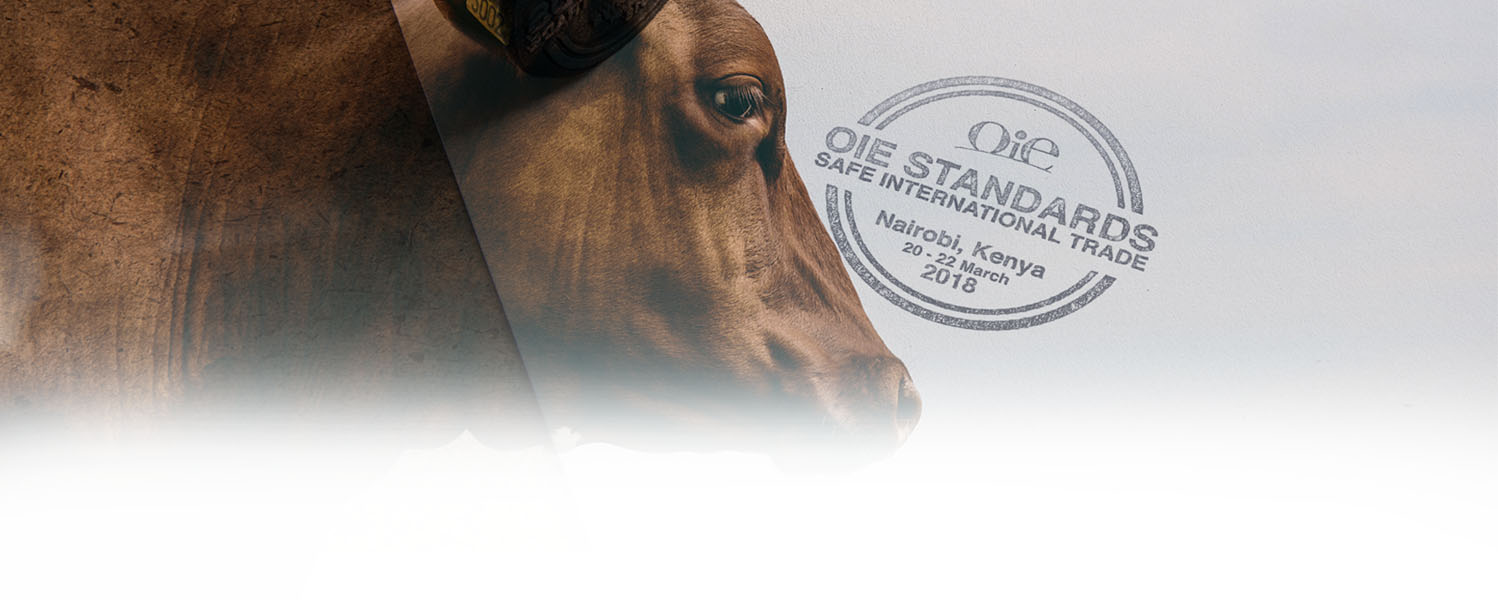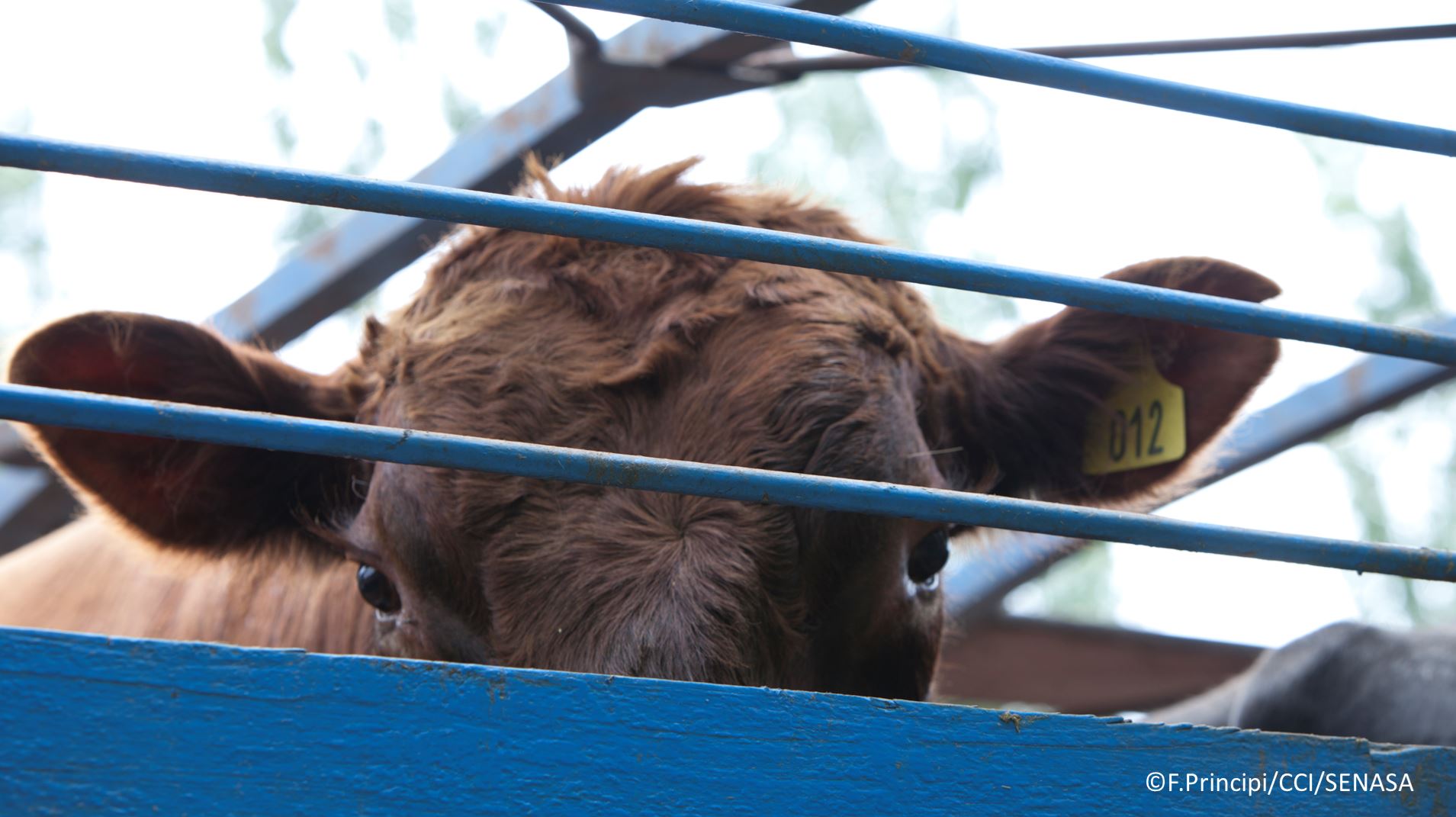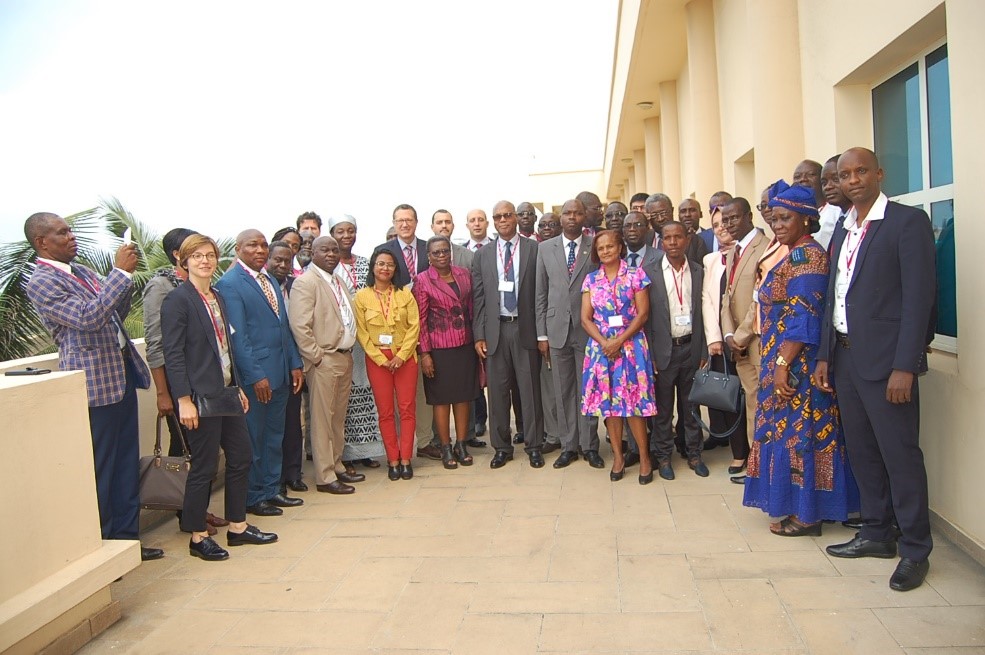



The OIE Regional Representation for Africa and the OIE Standards Department convened a regional workshop, held from 9 to 11 July 2019 in Cotonou Benin, on “OIE standards: facilitating safe international trade”. Participants included OIE Delegates or designated representatives from 23 French-speaking and Portuguese-speaking African countries.
The overall objective was for participants to develop a better understanding of OIE standards and their use, in order to implement appropriate sanitary measures and thereby facilitate safe international trade.
This was the second workshop on this topic held in Africa; the first workshop was organised for English-speaking African countries in Nairobi, Kenya, in March 2018. Both workshops were organised thanks to the generous contribution of the European Union.
This workshop used a combination of e-learning and interactive workshop sessions to ensure that the workshop was engaging and met learning objectives of the participants.
The participants appreciated this approach which was dynamic and participative. Prior to the workshop participants had access to five e-learning modules on: i) General introduction of the OIE; ii) International standards of the OIE, iii) The quality of veterinary services and the PVS pathway, iv) The notification of animal diseases and WAHIS and v) Facilitating safe international trade. These modules included an online quiz to verify the level of acquisition of knowledge.
Group photograph. Picture (c) B. Lafia (oie) 2019.
The workshop was conducted with the support of skilled experts and used a range of different approaches including presentations during plenary sessions, practical exercises, role-plays and the use of an online survey tool to interact directly with participants.
This interactive training met its objectives and the expectations of the participants. The main outcomes were:
Through this training, participants gained a greater understanding of the importance of implementing OIE standards to facilitate safe international trade in animals and animal products, and to improve animal health and welfare, and veterinary public health throughout the world.


